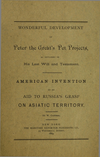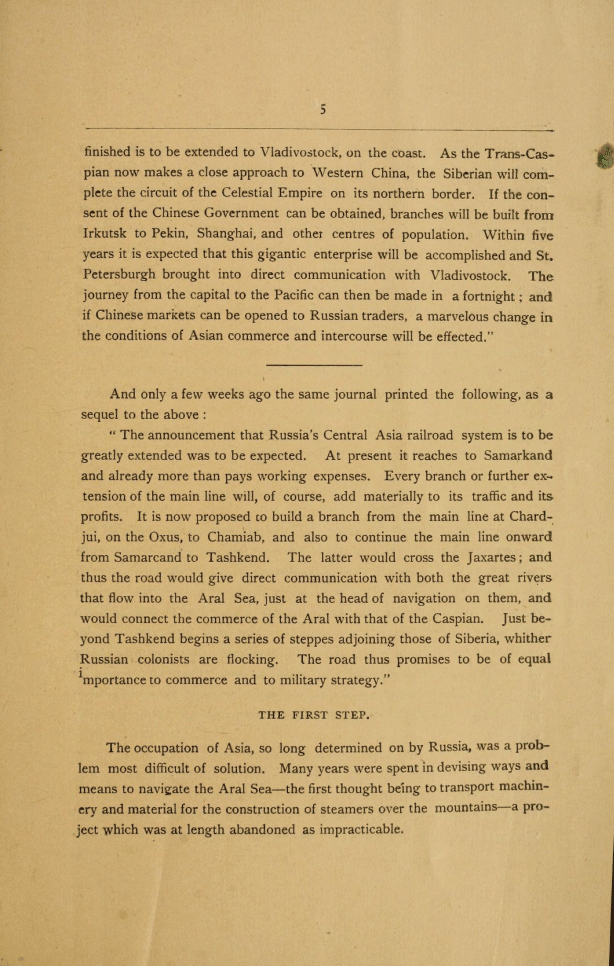
Page 5: of Maritime Reporter Magazine (January 1889)
Read this page in Pdf, Flash or Html5 edition of January 1889 Maritime Reporter Magazine
5 finished is to be extended to Vladivostock, on the coast. As the Trans-Cas- pian now makes a close approach to Western China, the Siberian will com- plete the circuit of the Celestial Empire on its northern border. If the con- sent of the Chinese Government can be obtained, branches will be built from
Irkutsk to Pekin, Shanghai, and other centres of population. Within five years it is expected that this gigantic enterprise will be accomplished and St.
Petersburgh brought into direct communication with Vladivostock. The journey from the capital to the Pacific can then be made in a fortnight; and if Chinese markets can be opened to Russian traders, a marvelous change in the conditions of Asian commerce and intercourse will be effected."
And only a few weeks ago the same journal printed the following, as a sequel to the above : " The announcement that Russia's Central Asia railroad system is to be greatly extended was to be expected. At present it reaches to Samarkand and already more than pays working expenses. Every branch or further ex- tension of the main line will, of course, add materially to its traffic and its profits. It is now proposed co build a branch from the main line at Chard- jui, on the Oxus, to Chamiab, and also to continue the main line onward from Samarcand to Tashkend. The latter would cross the Jaxartes; and thus the road would give direct communication with both the great rivers that flow into the Aral Sea, just at the head of navigation on them, and would connect the commerce of the Aral with that of the Caspian. Just be- yond Tashkend begins a series of steppes adjoining those of Siberia, whither
Russian colonists are flocking. The road thus promises to be of equal ^portance to commerce and to military strategy."
THE FIRST STEP.
The occupation of Asia, so long determined on by Russia, was a prob- lem most difficult of solution. Many years were spent in devising ways and means to navigate the Aral Sea—the first thought being to transport machin- ery and material for the construction of steamers over the mountains—a pro- ject which was at length abandoned as impracticable.

 4
4

 6
6
